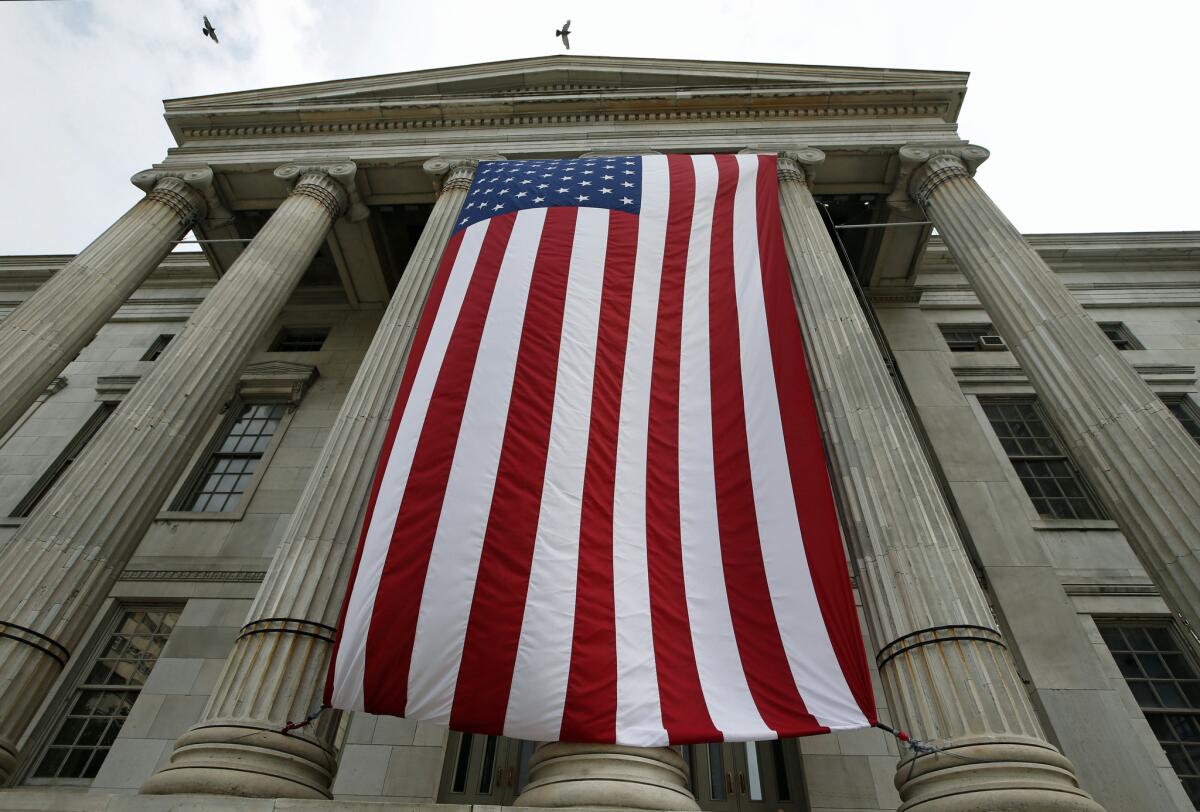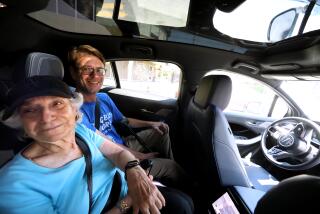Fourth of July: Three transplants to America, one reason to celebrate

- Share via
His name is Mo, and he’s a driver for Lyft, a ride-sharing company. But he did more than deliver me safely to my destination. He reminded me of why we celebrate the Fourth of July.
Mo picked me up in his car at the Embarcadero in San Francisco on Saturday, the kind of sunny, breezy day that makes you forget the near-case of the chilblains you suffered the previous foggy night. Our destination: Lands End in the northwestern corner of San Francisco about 30 minutes away.
We had plenty of time to chat, and his slight accent made me curious enough to ask where he was from.
“Persia,” he said, later acknowledging that he deliberately used that name instead of “Iran” because of the perceived stigma.
He’s in the U.S. studying electrical engineering. He likes it here.
What’s been the biggest surprise in his 19 months in the U.S.?
Without hesitation, he responded, “Freedom.”
Taken aback, I asked him what he meant. “No one tells me to pray,” he said. “If I want to drink alcohol, I can,” adding that he really doesn’t because here, it’s not a forbidden fruit, unlike his home country, where it’s all underground. He can go where he wishes, when he wishes.
Mo said he harbors no ill will against those who automatically assume he embraces Islamic extremism, which he explained has no place in his new life.
I thought a lot about Mo that day, and even more after my next cab ride with a man from Eritrea, a country on the Red Sea in the Horn of Africa. Eritrea got its independence from Ethiopia in 1993, but it hasn’t exactly been milk and honey since.
The transitional government that was put into place after independence is still in place. The government of “Eritrea is an authoritarian regime under the control of President Isaias Afwerki,” said the State Department’s “Country Reports on Human Rights Practices for 2011.”
“There were consistent and persistent reports of serious human rights violations. These abuses included, but were not limited to, harsh and life-threatening prison conditions that included torture and incommunicado detention, which sometimes resulted in death; forced labor of indefinite duration through the mandatory national service program; and the severe restriction of civil liberties including freedom of speech, press, assembly, association, and religion.”
Life in the U .S. isn’t easy, this driver for Luxor cabs said. You have to work hard to pay the rent and provide for the family. He wasn’t complaining, though—just commenting.
“What’s the most surprising thing about living in the U.S?” I asked him.
With hesitation, he responded, “Freedom.”
Later that day, I rode with JoJo, who drives for Uber, also a ride-sharing system. He’s from metropolitan Manila and went to primary and secondary school just a couple of blocks from where I lived when I was a kid.
Why did he come to the U.S.?
Economic opportunity, he said—another form of freedom. The Philippines, the Economist wrote in August, “still ranks as one of the most corrupt [countries] in South-East Asia, despite a boost in the tables last year (from 129th to 105th in Transparency International’s corruption perceptions index).” Graft, it notes, is the “bane” of the country.
Writing in Weekly Insight and Analysis in Asia, Ky D. Johnson notes that Filipino “executives seeing ‘a lot’ of corruption in the public sector rose to 56% in 2013, from the record-low 43 percent in 2012.”
The U.S., we should note quickly, remains hugely, wildly flawed. We have the freedom to say that, but that is not a luxury for the few. It is a life for the many.
Happy Independence Day.
Follow us on Twitter at @latimestravel
More to Read
Sign up for The Wild
We’ll help you find the best places to hike, bike and run, as well as the perfect silent spots for meditation and yoga.
You may occasionally receive promotional content from the Los Angeles Times.







